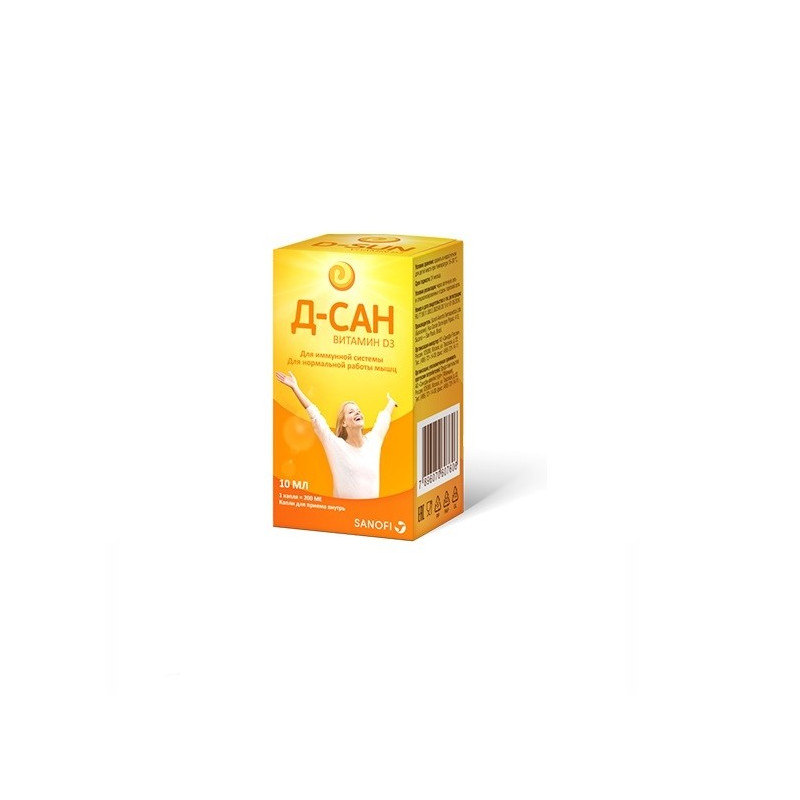



 All payments are encrypted via SSL
All payments are encrypted via SSL
 Full Refund if you haven't received your order
Full Refund if you haven't received your order
- maintaining the immune system;
- normal muscle function;
- maintenance of the skeletal system.
- Vitamin D contributes to the maintenance of the immune system. A number of clinical studies have shown that supplemental vitamin D supplementation was associated with a lower risk of colds.
- Vitamin D deficiency leads to a deterioration in the absorption of Calcium and phosphorus from food from the intestines, as well as impaired bone mineralization. Maintaining a normal level of vitamin D is also necessary for adolescents over 12 years of age, since it is this period that is critical for bone growth.
- Vitamin D deficiency can also cause muscle weakness. As a result, children with vitamin D deficiency may have difficulty standing and walking, and in older people there is an increased risk of falls and subsequent bone fractures.
- In clinical studies, the relationship between the level of vitamin D and the effectiveness, strength of the muscles, as well as endurance during exercise.
Peanut oil, lemon oil (flavoring), alpha-tocopherol acetate (antioxidant), cholecalciferol (vitamin D).
As a biologically active food supplement - an additional source of vitamin D.
Fats - 0.99 g, the energy value - 8.9 kcal (37.2 kJ).
Cholecalciferol is involved in bone tissue matholabolism, it helps the functioning of muscles and supports the normal functioning of the immune system, which allows you to resist diseases in the cold season.
Vitamin D deficiency may be due to the following reasons (or a combination thereof):
- age over 65 years;
- breastfed babies without supplementing vitamin D by the mother / child;
- dark skin;
- insufficient time spent in the sun;
- taking drugs that violate the metabolism of vitamin D;
- obesity
- sedentary lifestyle
For adults, 2 drops per day with meals.
